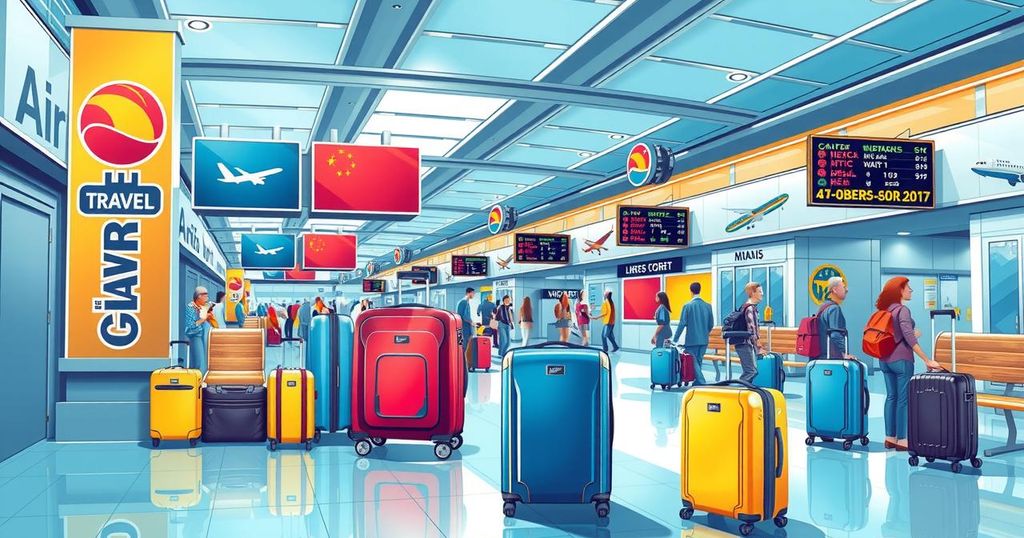President Trump’s new travel ban started today, restricting entry for travelers from over a dozen countries, including Cuba, Venezuela, and Haiti. Many in South Florida are concerned, especially with visas and the impact on local communities. Local leaders have criticized the ban, predicting adverse effects on families and social fabric in the region.
President Donald Trump’s new travel ban was set into motion today, imposing significant restrictions on travelers from over a dozen nations. Many Cubans, Venezuelans, and Haitians will particularly feel the impact, with entry barred for tourists and family visits — though green card holders remain unaffected. In addition, the ban halts visa issuance for non-immigrants and immigrants from several nations, including Haiti.
At Miami International Airport, things seemed to carry on as usual as the new rulings took effect early this morning. The time stamp was set for 12:01 a.m. on Monday, and with it came worries among travelers holding valid U.S. visas. They now question their ability to board flights and gain admission into the U.S., causing quite a bit of anxiety.
As the travel ban becomes reality, questions churn around who can enter the U.S. under these new rules. While the State Department has mentioned that travelers from the affected nations can retain their valid visas, the actual decision regarding entry will rest with the Department of Homeland Security at the U.S. ports of entry.
Local leaders in South Florida decried the ban last week, pointing out that it specifically targets communities in Miami-Dade and Broward counties. These areas hold significant populations originating from Cuba, Haiti, and Venezuela, which could face serious repercussions from this ban.
North Miami Mayor Alex Desulme shared a poignant response on the matter, saying, “The reinstatement of this ban is a direct attack on the values of equity, compassion and opportunity that our city and this nation were built upon. It causes fear, separates families, disrupts lives and unfairly targets communities that have long contributed to the country’s strength and prosperity.”
Moreover, the scope of the travel restrictions is substantial. While seven countries face partial restrictions, including Cuba, Venezuela, and others, twelve countries, such as Haiti and Afghanistan, are completely barred from entry. This list also encompasses nations like Libya and Sudan.
A spokesperson from the Department of State confirmed that existing visas will not be revoked, but it remains up to Homeland Security to determine who they’ll admit at U.S. borders. There are still many lingering questions regarding visas and the specifics of who gets in — and who doesn’t. It’s a chaotic time for many with family ties or business interests across these affected nations.
In summary, the Trump administration’s travel ban is now in effect, generating significant concern among South Florida’s Cuban, Venezuelan, and Haitian communities. Local leaders criticize the ban for its detrimental effects on families and local populations, while confusion surrounds the actual entry rules for travelers with existing visas. The landscape of international travel to the U.S. is shifting dramatically for numerous revoked nations, leaving many in a precarious position with no clarity in sight.
Original Source: www.miamiherald.com






